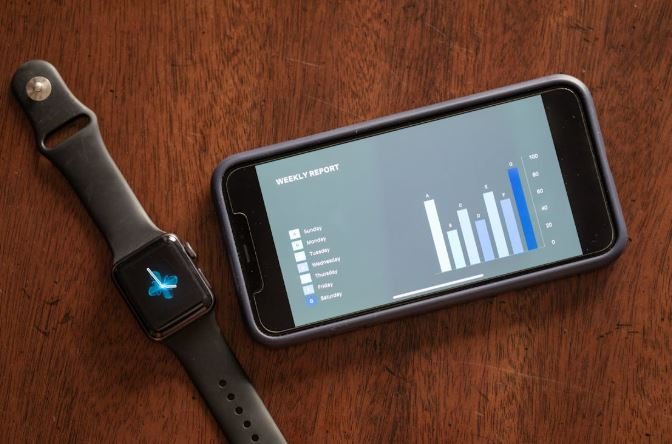In today’s digital age, fitness app subscriptions have become a popular way for individuals to stay on top of their health and fitness goals. With so many apps promising to help you lose weight, build muscle, and stay motivated, it’s easy to wonder whether these subscriptions are truly powerful tools or simply overhyped distractions. In this article, we’ll explore the pros and cons of fitness app subscriptions, helping you determine whether they’re worth your time and money.

The Rise of Fitness App Subscriptions
Fitness app subscriptions have seen explosive growth over the past decade. With millions of users worldwide, apps like MyFitnessPal, Nike Training Club, Peloton, and others have redefined the way people approach fitness. Whether you’re looking for workout plans, nutrition tracking, or mental wellness support, these apps provide a variety of features that aim to make fitness more accessible, personalized, and convenient.
However, despite their popularity, many users question whether fitness app subscriptions are truly as effective as advertised. Are they powerful tools that help you achieve your goals, or are they just another digital distraction?
Powerful Tools for Fitness Goals
Fitness app subscriptions offer a range of features designed to enhance your workout experience and help you reach your fitness goals. Here are some reasons why these apps can be powerful tools for those committed to their health and fitness journeys:
1. Personalized Plans and Guidance
One of the most significant advantages of fitness app subscriptions is the ability to access personalized workout plans tailored to your fitness level, goals, and preferences. Whether you’re aiming to lose weight, build muscle, or improve endurance, many apps provide customized workout routines designed to meet your specific needs. With step-by-step instructions and video demonstrations, these apps can help you perform exercises correctly, reducing the risk of injury and increasing workout effectiveness.
For example, Peloton offers a variety of classes, from cycling to strength training, that cater to all levels. Similarly, apps like Freeletics provide personalized coaching based on your current fitness level and progress.
2. Convenience and Accessibility
Fitness app subscriptions allow you to work out anytime, anywhere. Whether you’re at home, in a hotel room, or at the gym, you can access workout videos, tutorials, and routines with just a few taps on your smartphone. This convenience removes barriers to exercise, making it easier for busy individuals to stay consistent with their fitness routines.
For those who prefer working out at home or have limited access to a gym, fitness apps can be a game-changer. With on-demand classes, challenges, and guided programs, fitness apps make it possible to fit exercise into even the busiest schedules.
3. Tracking Progress and Accountability
Another powerful feature of fitness app subscriptions is the ability to track progress over time. Many apps allow you to log workouts, track calories, measure body metrics, and monitor your improvements. This data-driven approach helps you stay motivated by showing your progress and highlighting areas for improvement. Additionally, fitness apps often include features that allow you to set goals, which can provide an added layer of accountability.
The integration of wearable devices like Fitbit or Apple Watch with fitness apps further enhances this tracking experience, providing real-time data that helps you stay on course toward your fitness objectives.
4. Variety of Options
Fitness app subscriptions offer a wide variety of workout styles, from yoga and Pilates to high-intensity interval training (HIIT) and strength training. This variety keeps workouts interesting and can prevent the dreaded workout burnout. With new programs, challenges, and features added regularly, fitness apps can keep your fitness journey fresh and engaging.
For example, Nike Training Club offers a range of workout options, from bodyweight exercises to strength training routines, while apps like Headspace offer mindfulness and meditation, which is also an important component of overall wellness.

Overhyped Distractions: Potential Drawbacks of Fitness App Subscriptions
Despite the benefits, there are also some notable drawbacks to fitness app subscriptions. While they can be powerful tools for many, they might also be overhyped distractions for others. Here are some potential disadvantages to consider:
1. Subscription Costs Add Up
While fitness app subscriptions often offer a free trial, they generally come with a recurring cost. These costs can quickly add up, especially if you’re subscribed to multiple apps or premium plans. Many users sign up for free trials but forget to cancel them, leading to unplanned charges. In some cases, the subscription costs may not be justified if you don’t consistently use the app or if it doesn’t provide the value you were expecting.
Before committing to a fitness app subscription, it’s important to evaluate whether the features align with your fitness goals and whether the cost fits within your budget.
2. Overwhelm and Choice Paralysis
With so many fitness apps on the market, choosing the right one can be overwhelming. Many apps offer similar features, but deciding on which one is best for you can be difficult, especially when each app promotes itself as the ultimate solution for your fitness needs.
This can lead to “choice paralysis,” where the sheer number of options prevents you from committing to a single app or fitness plan. Additionally, some apps may offer too many features, making it hard to focus on what’s truly important. Instead of feeling empowered by the tools at your disposal, you may end up feeling overwhelmed and confused by the multitude of options.
3. Lack of Personalization in Some Apps
While some fitness apps are excellent at offering personalized plans, others may fall short. Many apps have a one-size-fits-all approach to fitness, which might not be ideal for everyone. For example, some apps provide generic workout plans that don’t take into account individual needs, such as injuries, specific fitness goals, or dietary preferences. Without proper personalization, these apps may feel like overhyped distractions rather than powerful tools that deliver results.
4. Motivation Issues and Accountability Gaps
Although many fitness apps offer tracking features and progress monitoring, they often fall short in terms of providing real human interaction or accountability. For many users, motivation can be a major challenge. Without personal coaching or a supportive community, some may find it difficult to stay consistent with their workouts. While some apps offer virtual coaching, the absence of direct interaction can leave users feeling isolated or unmotivated.
Moreover, without the social aspect of exercising in a gym or group setting, it can be harder to stay committed to your routine, and your app may end up being an overhyped distraction that fails to inspire consistent progress.

Conclusion: Fitness App Subscriptions – Powerful Tools or Overhyped Distractions?
The question of whether fitness app subscriptions are powerful tools or overhyped distractions depends largely on individual preferences and goals. For some, these apps provide an invaluable resource for staying motivated, tracking progress, and working out on their terms. They are highly effective tools for improving fitness, especially when combined with consistency and commitment.
However, for others, the hype surrounding these apps may not live up to expectations. The subscription costs, potential overwhelm, and lack of true personalization could make fitness apps feel like overhyped distractions that don’t provide the results they promise.
Ultimately, the effectiveness of a fitness app subscription hinges on how well it aligns with your specific fitness goals, how consistent you are in using it, and whether it provides the motivation and support you need. If you find the right app for your needs, it can be a powerful tool to help you reach your fitness potential. However, if it becomes just another distraction, it may be time to reconsider whether it’s the right fit for you.


